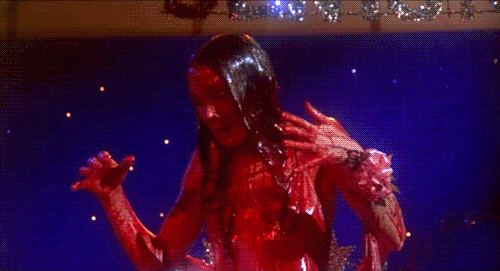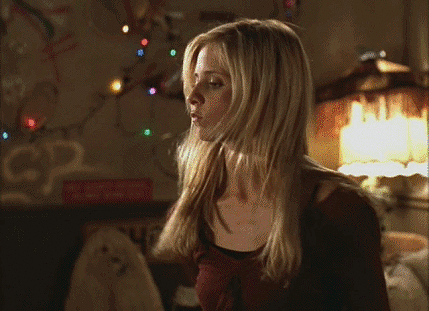Why Are Australian Women Still Being Penalised For Getting Their Periods?
Tampons and pads are still taxed and many disadvantaged women don't even have access to them. Where's the Minister for Women when you need him?

[UPDATE: May 26, 2015] Since this piece was first published, Subeta Vimalarajah launched the petition called ‘Stop Taxing My Period’, which has been signed by close to 100,000 signatures. Vimalarajah also appeared on Q And A, with a question about the period tax that prompted Treasurer Joe Hockey to promise to “raise it with the states at the next meeting of the Treasurers in July”. To add your name to her petition, head here.
–
I got my first period the day before my 13th birthday, and it was just as terrifying as I’d imagined it would be. My mum wasn’t home and I was too embarrassed to consult outside sources (i.e. my dad) so instead, I locked myself in the bathroom and whispered “Why is this happening to me?” to no one until she came home.
I was a fairly dramatic child.

In retrospect, this is pretty embarrassing. Not only was I privileged enough to have pads provided for me, but I had the comforts of food, shelter and medicine to make it less of an ordeal. It took me a while to realise that not every 12-year-old has that stuff. Even now, it’s easy to forget because we’re still often told that talking about menstruation is best left to health class or particular episodes of Roseanne.
Now, English organisation The Homeless Period is trying to change that.
–
What’s It All About?
Started by three advertising interns, The Homeless Period is an online petition aiming to get government-run homeless shelters to provide sanitary products. As many of these shelters already supply free condoms and men’s razors, the omission seems kind of stupid. Of course pads and tampons should be available to homeless and disadvantaged women. Of course they are just as important as condoms. How, in 2015, in one of the wealthiest countries in the world, are women having to deal with the shame of walking around in uncomfortable, stained clothing, with no way of stopping it?
In case you’re wondering, it’s a problem in Australia too.
“Menstruation is still seen as ‘dirty’ and an inappropriate topic of conversation by many in Australia, and as a ‘women’s issue’ it has been less than a priority for governments to address,” says CEO of the Australian Women’s Health Network Kelly Banister. “We have the same issues in Australia and this is only set to become worse with more women living in poverty and becoming homeless.”

Of the 105,000 people who are homeless in Australia right now, 44 percent are women, and Banister says she is not aware of any homeless shelters which provide pads or tampons. They are currently available at some women’s health centres along with free shower and laundry services, but it’s not guaranteed as they receive very limited funding. Also, these figures don’t even include the legions of low-income women for who spending $10 a month on tampons and pads is out of the question.
So, with the Homeless Period focused solely on the UK, how can we get our own government to acknowledge the problem?
–
It’s Time To Talk About Periods!
The United Nations has already broadly argued that the stigma around menstruation and menstrual hygiene is a “violation of several human rights, most importantly of the right to human dignity”. Not being able to talk about periods can lead to serious health risks and in some countries getting your period still means missing school or work for one week every month.
Even in Australia where we consider ourselves reasonably developed in the way of women’s rights, there’s still a taboo around talking openly about menstruation just in case you ‘gross’ someone out with the revolting things your revolting female body is doing. Even tennis players — who are the closest thing to untouchable gods we have in Australia — can’t even vaguely allude to the fact that they have period pain without it being HEADLINE NEWS.
Weirdly, the fact that it’s fucking badass to be able to bleed for a week and not die hardly ever comes up.

This stigma attached to menstruation means whenever anyone talks about it publicly it seems shocking and inappropriate, but if you don’t talk about it, it doesn’t exist. And in some places, that silence results in everything from girls dropping out of school to serious health risks like infection from using unsanitary materials.
–
Remember The ‘Tampon Tax’? Yeah, That’s Still A Thing.
In Australia we’re lucky enough that at some point in your schooling, a teacher will probably explain menstruation to you — shout out Miss Anderson, Year 7 heath represent! — but, that’s usually about where things stop.
Despite being a relevant issue for more than half of the population, conversations around period safety and subsidies seem to pop up for about two weeks every few years, before promptly disappearing again. Whether it’s because of the stigma attached to Period Talk™ or the fact it seems like our Minister for Women has never actually talked to one, the government really doesn’t prioritise it as something of public importance.
During the Howard era, when the GST raised the price of sanitary products, the ‘Tampon Tax’ was debated extensively, and then it disappeared again before anything was really solved. The fact that pads and tampons were not classified as essential health items led to many calling for them to be subsidised in 2009, and Coles reduced the price of sanitary products by 10 percent as a result. But the last time we really talked about it at the federal level was in 2013, when a student from Perth began a petition to abolish it. The Tampon Tax went unchanged.
Condoms are still GST-free, by the by — and that’s great! But it’s curious to see what is considered in the best interests of Australia’s public health and what is not. Kelly Banister says that if pads and tampons are not going to be recognised as essential health items, at the very least the GST should be removed.
“Subsidised tampons and pads could also be made available to concession holding women and girls throughout Australia … and be made freely available to those who are homeless or incarcerated,” she says. “To do otherwise supports an Australian culture that devalues the needs of women and girls and continues to discriminate against them.”
–
This Is More Important Than You Might Think
It may seem strange to debate the price of tampons and pads in terms of a few dollars, but it’s also a concrete example of the government’s refusal to acknowledge a health issue that is undeniably gendered.
During an interview on Radio National in 2000, a male reporter asked Labor’s Shadow Minister for Health Jenny Macklin why tampons should be tax-free and shaving cream shouldn’t. “I mean, men have to shave, you know, their hair grows, and women bleed,” he said. “Not quite the same hygienic problems involved, Matt,” she replied. Of course, she’s right. As a woman, it’s really hard not to take this personally, and assume that our health issues aren’t seen as important.
“It’s interesting that people don’t have an issue talking about condoms, but anything to do with bleeding or menstruation they can’t think about,” says Jenna Price, co-founder of Destroy the Joint. “Women’s bodies make men uncomfortable, so they don’t want to deal with it”.
To bring attention to this problem, Destroy the Joint led an online campaign last year telling everyone about the scarce provisions of sanitary products in Australian detention centres. They aimed to stop the “ritual humiliation of women” after claims by refugee and asylum seeker rights organisation RISE that female detainees had to ask a male officer for provisions and were sometimes only given one or two products at a time.
Despite the group raising considerable media coverage with their send-a-tampon-to-Scott Morrison campaign and RISE attempting to raise a parliamentary enquiry, the issue never led to any actual change. Scott Morrison’s office flat-out denied the allegations claiming women in detention had free access to unlimited sanitary items, and refugee rights group gave no further proof that this wasn’t true. Jenna says that after a couple of weeks, they didn’t even know who else they could contact.
Dear Mr Morrison What would you do to keep your wife and daughters safe? #StopTheTampons @JointDestroyer pic.twitter.com/CziOX8chy1
— Vanessa (@VanessaJDodd) February 9, 2014
–
Okay, So Everything’s Awful. What Can We Do?
It seems like a stretch to think that all the stigma associated with talking about periods will suddenly evaporate one day, but who knows? Before Kevin Bacon arrived in Beaumont, they never dreamed they would dance!
It’s easy to get bogged down in the statistics or even just the frustration that this is seen as a lady issue and not just a human one, but you can do stuff to help. From an international standpoint, there are a tonne of organisations that are helping women in developing nations have access to sanitary products (try this one, or this guy, or here!). And though we don’t have a Homeless Period of our own, it doesn’t mean you can’t hustle locally.
“To help bring about the change needed, people can start their own petition in their local area and send it to the mayor of their local council, their federal and state government representatives, the Federal Treasurer Mr Hockey and Minister for Women Mr Abbott,” Kelly Banister says. “You could [also] talk with your local homeless services asking that they seek funding to supply sanitary products free of charge to their women clients.”
The Homeless Period’s tagline “It doesn’t bear thinking about… and that’s the problem” applies across the globe. There’s a reason why Instagram’s censorship of Rupi Kaur’s menstruation-themed photo series sparked outrage on the internet – women were explicitly being told to keep their bodies out of the public eye.
In retrospect, I wish I could tell my 12-year-old self to just relax, go in the next room and tell my dad what was going on with my privates. It’s not just this secret language between women, it’s something everyone should know and discuss. Maybe if we weren’t so conditioned to keep quiet about menstruation, initiatives like The Homeless Period wouldn’t even be necessary. Periods aren’t anything to be embarrassed about. In fact, they’re pretty badass.

–
Sinead Stubbins is a writer from Melbourne who has done stuff for Yen, frankie, Smith Journal and Elle. She tweets about Drake, Gilmore Girls and cheeseburgers at @sineadstubbins.

